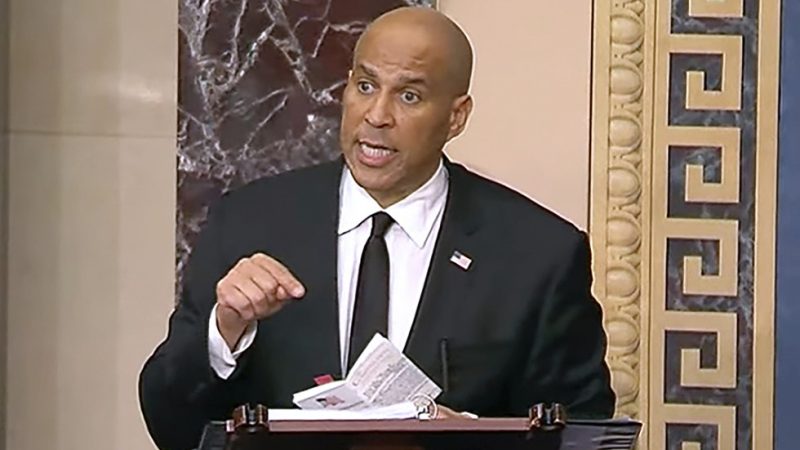
In a stunning display of political stamina and unwavering conviction, Senator Cory Booker (D-NJ) recently delivered a marathon speech spanning an incredible 25 hours. This unprecedented filibuster aimed to directly challenge President Trump’s policies and served as a powerful symbol of resistance within the Senate. Booker’s relentless address captivated the nation, showcasing his dedication to his principles and sparking widespread debate about the effectiveness of such dramatic political maneuvers.
The senator’s speech covered a broad range of issues, focusing on the Trump administration’s policies on healthcare, immigration, and environmental protection. He passionately highlighted the potential negative consequences of these policies for ordinary Americans, weaving in personal anecdotes and compelling statistics to drive home his points. The sheer length of the speech, however, also raised questions about the practicality of such a strategy in today’s politically charged environment.
While some criticized the filibuster as a symbolic gesture with limited practical impact, others lauded it as a necessary act of defiance against what they perceive as a dangerous and destructive agenda. Booker’s supporters praised his unwavering commitment to fighting for what he believes in, arguing that his actions served to raise awareness of critical issues and invigorate the opposition. The speech undoubtedly generated considerable media attention, keeping the targeted policies in the public eye for an extended period.
The impact of Booker’s filibuster remains a subject of ongoing discussion. While it may not have directly altered any legislative outcomes, it undeniably served as a powerful statement, reflecting the deep divisions within American politics and the lengths to which some are willing to go to voice their opposition. It will undoubtedly be remembered as a significant moment in recent political history, raising questions about the role of dramatic displays of political resistance in an increasingly polarized world. The long-term consequences and the influence it will have on future political strategies are yet to be fully determined.










